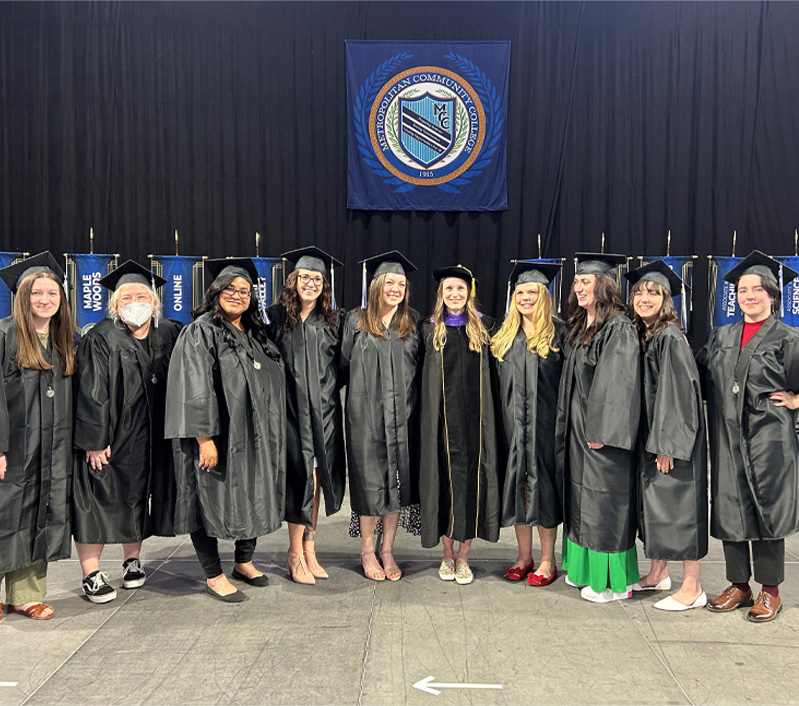You can turn your passion for law into a rewarding career. Paralegals play an important role in today's legal system. Paralegals, also referred to as legal assistants, are non-lawyers who have the qualifications and expertise to perform many of the same tasks as lawyers.
Paralegals work for law firms, courts and government agencies. Paralegals work in all areas of law - litigation, criminal law, family law, contracts, bankruptcy, intellectual property, real estate transactions, immigration and more.
Program highlights
- The Legal and Paralegal Studies program is an Associate in Applied Science (A.A.S.) Degree Program. It takes two years to get an Associate in Applied Science degree if attending full-time.
- The program has two start options - Fall or Spring.
- The program can be completed remotely through a combination of online and virtual courses.
- Students will gain a broad knowledge of substantive and procedural law and the specific skills required to be a productive member of today's legal team.
- The program finishes with an internship class where you'll spend a semester actually working in the legal environment under the direct supervision of a lawyer or judge.
- You can choose to learn about the areas of law that interest you.
- Our program consists of fundamental courses, such as legal research, legal writing and ethics. We offer electives that cover various areas of law, such as litigation, family law, torts, contracts and more.
Skills you'll learn
Our goal is to prepare you for the career of your future. Our faculty includes working judges, lawyers and paralegals, who have both expertise in the law and experience working directly with or as paralegals. Some of the skills you will learn include:
- Modern Technology: you'll have access to legal library resources as well as computer based research tools such as Westlaw or LexisNexis.
- Practical Experience: Many of the course assignments are designed to replicate work one might do in a law firm, making sure you prepared for your job.
- Writing Emphasis: We emphasize writing and communication skills. Good writing will set you apart from other candidates in the job market.
- Ethics for the Paralegal: We will teach you ethical rules and boundaries you need to know.
New! Paralegal Practice Certificate
The Paralegal Practice Certificate prepares students to perform substantive and procedural legal work under the supervision of an attorney. Paralegals may not provide legal services directly to the public, except as permitted by law.
The required certificate courses focus on the core knowledge and skills needed by paralegals in all areas. The elective courses allow students to gain knowledge in various legal specialty areas.
The certificate program is only available to students who already have an Associate’s or Bachelor’s degree from an accredited institution.
Important: MCC recently updated the PARA course designators to LEGL. Please refer to the Paralegal and Legal Studies Course Crosswalk (PDF) to determine the name of the new LEGL course that will fulfill the PARA requirement on your degree plan.
Application information
- Fall Start/Admission Application Period: April 1 to June 30.
- Spring Start/Admission Application Period: Application opens July 1 and closes October 15 for preferential admission, regular deadline of November 30.
Early applications will receive priority status during the review process. Applications may continue to be accepted until all seats in the program have been filled for the next summer class.
Program acceptance
The student will be contacted if the student is accepted into the program. If the student is still in the process of obtaining their prerequisite courses, DO apply by the deadlines. After the posting of the grades the student will receive the formal program acceptance letter.
Students accepted into the program will work directly with the program coordinator to determine next steps. Students not accepted into the program should contact a Student Success Advisor.
Membership
American Association for Paralegal Education (AAfPE).
MCC students at the Missouri Court of Appeals
Legal and Paralegal Studies Program students visited the Missouri Court of Appeals and its law library.
Careers
Paralegal and legal assistants job outlook is expected to grow 14% between 2021 and
2031, which is much faster than average job growth.
Visit Occupational Information Network (O*NET) to view salary information, employment outlook and personal characteristics needed for this career.
What do Paralegals do?
Paralegals perform many of the same tasks as attorneys and are an invaluable part of the legal team.
They assume a growing range of tasks in legal offices that can include:
- Investigating the facts of cases.
- Interviewing witnesses and obtaining affidavits.
- Conducting legal research to identify appropriate laws, judicial decisions and legal articles.
- Helping prepare legal arguments.
- Drafting pleadings and motions to be filed with the court.
- Drafting contracts, mortgages and separation agreements.
- Assisting in preparing tax returns, establishing trust funds and planning estates.
- Preparing for closings, hearings, trials and corporate meetings.
- Organizing and tracking files of case documents.
Successful paralegals demonstrate the following skills:
- Detail oriented.
- Excellent writing and communication skills.
- Understand legal terminology and have good research and investigative skills.
- Know the operation and applications of computers in legal research and litigation support.
- Stay informed of new developments in the laws that affect your area of practice.
- Uphold the ethical standards of the legal profession.
- Professional and courteous.
Note: Paralegals MAY NOT provide Legal Services directly to the public except as permitted by law.
Transfer made simple
Whatever your transfer destination, we'll work to make sure your credits move easily. That's why we're experts at it. We've worked out specific transfer agreements with many four-year colleges and universities.
Please check with an advisor for transfer information.


